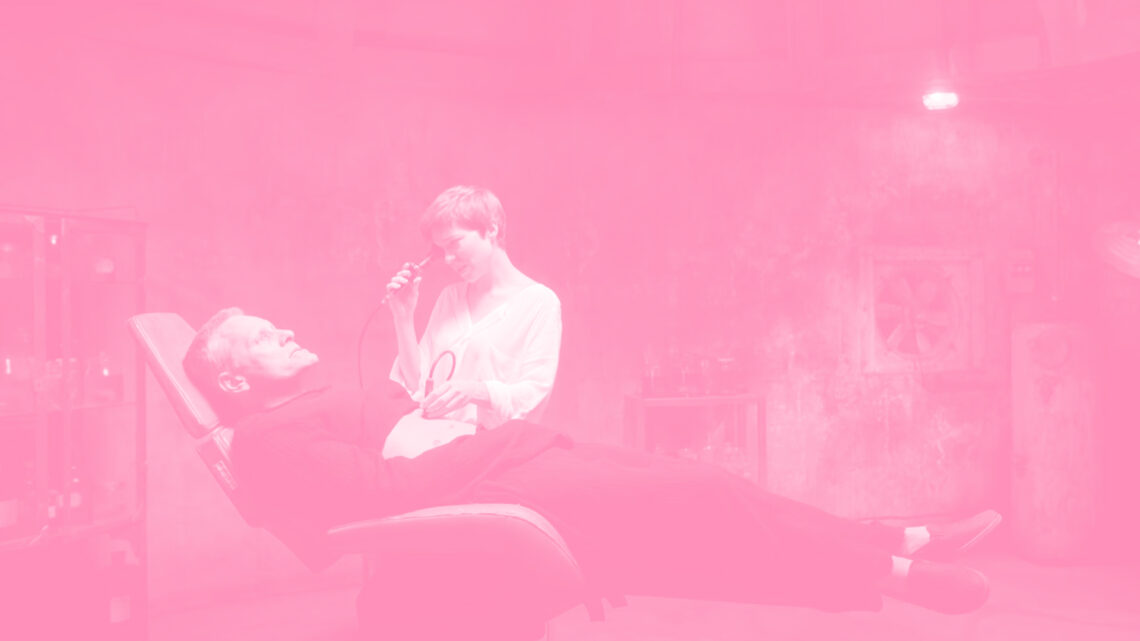Lately I’ve been experiencing some particular pains in my right index finger, which might be a not so subtle hint that I’ve been using my smartphone a bit too much…
It’s also an indication that the human body can’t keep with all the technological innovations we throw at it. It would be quite convenient to simply grow a second thumb or a sixth, more general finger, but hey, there’s a reason it’s called Evolution buddy. For the good things to come, we need to be patient I guess…
Nonetheless, thinking about these kinds of things raises a lot of questions about the relationship between our bodies and the technology we invent. It’s not for nothing that the iconic media theorist Marshall McLuhan saw every kind of technology — which can be as broad as a kitchen knife, a pair of glasses or a smartphone — as an extension of men. It literally extends our capabilities to reach beyond the limitations of our own bodies and enter a kind of virtual world, enabled by the technology surrounding us.
As a matter of fact, the idea that media produced by our technology is only surrounding us is a naive fallacy, a product of a human-centered kind of thinking where we think we can still place ourselves outside of the society we have produced. “We are living inside the media,” is what professor Mark Deuze at the University of Amsterdam always hammered on. Try to think of it, when we consume news on COVID, the war in Ukraïne, or any other event in the world we simply go one layer deeper in a kind of reality we’re already part of. Technology is the conduit, the extension of us, to give us new insight, but it’s a plain reality we’re already in.
Nobody is able to translate these kind of reflections on the relationship between technology and the human consciousness as David Cronenberg, a Canadian director who emerged in the world of film with low budget body horror in the 1970s and then became one of the most iconic genre filmmakers with films like Videodrome, The Fly, ExistenZ and Crash that combine highly conceptual, critical theory with pulpy and bodily pleasures. His film are disturbing, erotic, violent and gorey, but also smart, generous, essayistic and simply a whole lot of fun.
Videodrome is his grand reflection on media and how the imagery we consume is not virtual, but a physical manifestation of our desires. It’s one of the most horny mainstream films I’ve ever seen, which is frankly also an important part of Cronenberg’s films. ExistenZ philosophises on the way new realities, made possible by the interconnectivity of the computer, are just as real as the level of physical reality we perceive as objective. It’s the natural companion piece that challenges the techno utopia of the Matrix because there’s never a breaking out of the 0s and 1s. All of it is just the same in the Cronenberg universe.
As this episode airs, Cronenberg’s latest film Crimes of the Future is playing in cinemas all over the world, including the Netherlands. For me it feels like a kind of coda to the philosophy of Cronenberg, a high concept, low fidelity science fiction film about the shared imperfections between the computers and the human body. If ExistenZ still promises a kind of escape in a new reality, Crimes of the Future is here to tell you that we’ll never reach it, because of all of these factors — the way we develop technology and apply it as an extension of ourselves — are essentially a political battlefield, where the utopists are on the losing side. Set in the impoverished city of Athens — once the symbol of European civilisation, and now the symbol of capitalist decay — Cronenberg has constructed a tantalising, political allegory in which the human body is desperately trying to catch up with technology, resulting in mysterious new organs that grow in people and need to be surgically removed so that the genetic material of the human stays human. Can we still speak of evolution or is this a literal revolution happening inside our bodies?
Cronenberg throws a lot of stuff at you, some of it fantastically gorey and some delightfully horny, but all of it is also quite pensive and reflective. Some of the imagery is quite extreme, but the style feels kind of detached and seemingly devoid of emotion. This is apparent in the unlikely acting style of Cronenberg’s muse Vigo Mortensen, who is absolutely great here, but not as compelling and enigmatic as he was in earlier work like A History of Violence, Eastern Promises or A Dangerous Method. His body, in which bizarre, new organs grow, is a literal site of art in the film, and his creative and erotic partner played by Leo Seydoux is the artist/performer who surgically removes these organs as part of their performance art, presented in concrete-like techno clubs.
Is it Long Live The New Flesh, as Videodrome iconically proclaimed, or something more sinister? And is the film such an instant classic as Videodrome and Existenz, or is this a lesser Cronenberg reflecting on his own career in the rearview?
What does Cronenberg’s universe reveal about our bodies and the visceral experience of technology?
June 4, 2022- Categories: Cold Open
Comments are closed.

